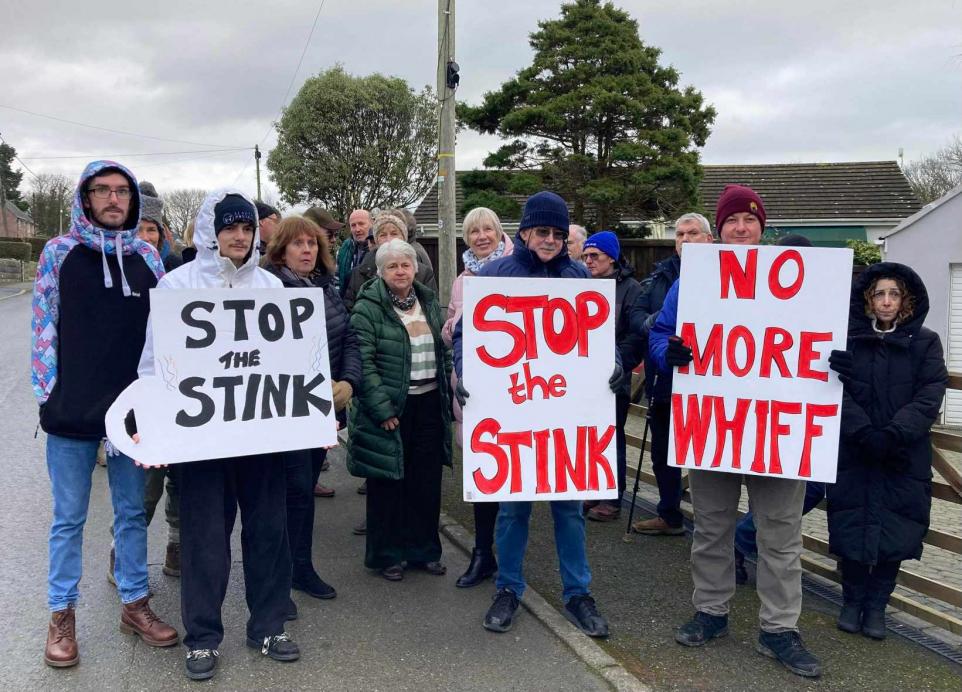Health
Welsh Lib Dems raise concerns over potential rise in dentist fees

THE WELSH LIBERAL DEMOCRATS have warned that dentistry fees could rise across Wales, potentially preventing thousands from accessing dentist services.
According to a report from the Welsh Government, only 39.9 % of adults from low-income areas can access dental care compared to 41.6% from least deprived areas.
The Welsh Lib Dems have also urged the Welsh Government to cut down on waiting lists. According to the “Filling in the gap” report an astonishing 93% of dentists in Wales in 2022 weren’t accepting new adult patients whilst 88% weren’t accepting new child patients.
This warning comes amid rumours that dentistry fees could rise following the Welsh Government’s budget announcement.
Commenting, leader of the Welsh Liberal Democrats Jane Dodds MS said: “At a time when our dentistry services are already teetering on the edge, the last thing we need to see is a rise in fees. Especially when people are already struggling with the cost of living.
We desperately need urgent investment in our dentistry services here in Wales, so that we can cut down on waiting lists and provide children with preventative treatment.
We must also invest in local services, so that those living in rural areas have easy access to dental care.
But by raising fees, the Welsh Labour government and their Plaid Cymru partners are driving people away from accessing vital medical services. Something which their Conservative rivals are already doing with their blatant disregard of the NHS.”
Health
Dental services ‘facing collapse’ in Wales

DENTAL services are at risk of catastrophic collapse, with people resorting to “DIY dentistry” and pulling their own teeth with pliers, the Senedd heard.
Peter Fox warned that NHS dental services are seeing rapid decline following the Welsh Government’s introduction of a new contract in 2022.
He told the Senedd: “These contracts don’t work for dentists, nor do they work for patients,” as he highlighted a 60% fall in the number of NHS dental posts compared with 2021.
Echoing concerns raised by the British Dental Association, the Conservative MS said dental services face potential catastrophic collapse due to the contract reforms.
Mr Fox, who represents Monmouth, cautioned that patients are being left with a choice between years’-long waiting lists or paying hundreds of pounds for private care.
He said: “This lack of accessibility has led people to drastic action – from harrowing stories of people pulling out their own teeth with pliers or people being forced to take 200-mile round trips to get dental appointments. Clearly, this is just simply unacceptable in the 21st century.”
Leading a debate about primary care on April 24, Mr Fox warned GPs are also struggling due to a lack of contract funding, which is not uplifted in line with rising costs and pay uplifts.
He told MSs some GPs are having to pay staff and utility bills out of their own pockets, with practices forced to withdraw more and more services.
The Conservative said some constituents face 50-mile round trips and 50-week waits for services in hospitals that were previously carried out routinely and timely in GP practices.
Mr Fox, who led Monmouthshire council for more than a decade before being elected to the Senedd in 2021, urged the Welsh Government to urgently review GP and dental contracts.
Eluned Morgan told the chamber the majority of contacts with the NHS are in primary care – with up to one-and-a-half million contacts a month in a population of three million people.
Wales’ health secretary recognised the extreme pressure on practices, saying the contract last year provided a 5% uplift not just to GPs but also staff who work in their surgeries.
She said: “We want to reform the dental contract on a preventative basis, responding to risk and need, and we have introduced up to 300,000 appointments to new dental patients.”
Baroness Morgan, who is married to a GP, stressed the importance of other professionals in the community, such as pharmacists and opticians, to the preventative agenda.
She said most pharmacies in Wales provide a free service for 27 common ailments, helping to reduce pressure on GPs and other parts of the healthcare system.
During first minister’s questions on April 23, Sian Gwenllian said many of her constituents are unable to access public dental services – “an entirely unacceptable situation”.
The Plaid Cymru MS for Arfon raised concerns a new dental academy in Bangor closed its books to NHS patients despite promises it would help tackle a lack of public services.
Sam Rowlands, the Conservatives’ new shadow health secretary, said far too many people across north Wales do not have access to an NHS dentist.
He raised comments from Russell Gidney, chair of the Welsh general dental practice committee, warning of a rise in “DIY dentistry” due to a lack of proper access.
Vaughan Gething said the Welsh Government is committed to reforming the dental contract to unlock capacity and access to NHS services is one of the health secretary’s top priorities.
Health
Pembrokeshire residents suffer severe health decline ‘due to landfill gases’

A PEMBROKESHIRE couple, Mr Richard and Revd Patricia Rogers of Crud yr Awel, are experiencing severe health issues attributed to emissions from the Withyhedge Landfill, resulting in drastic lifestyle changes and severe symptoms.
Revd Rogers, who has managed asthma since childhood, reported a significant deterioration in her condition following exposure to landfill gases. Despite having controlled her asthma with minimal medication for years, she now requires intensive treatment including increased doses of Symbicort and Salbutamol Sulfate inhalers, alongside courses of steroids and antibiotics. Her symptoms have escalated to include extreme breathlessness, a hacking cough, frequent nosebleeds, continual headaches, and vertigo, culminating in a severe impact on her ability to perform daily tasks and care for her disabled daughter.
The couple’s health is closely monitored through their doctor’s surgery, and they attend the asthma clinic regularly. However, feeling powerless to directly change the situation, they have taken a stand by cancelling their council tax payments, a decision they plan to maintain until the landfill issue is resolved.
Revd Rogers has also prepared a letter to the Coroner, outlining the severity of her health issues as potentially life-threatening due to the landfill’s impact. This dramatic step underlines the gravity of their situation and their desperation for a resolution.
The Rogers’ story is not just a personal tragedy but a stark example of the broader environmental and health challenges faced by the community surrounding the Withyhedge Landfill.
They are calling for punitive measures against those responsible, including compensation for the financial impacts of their ordeal.
Their story has surfaced on the same day we reported that Natural Resources Wales is taking further enforcement action against the firm running the site.
NRW has issued site operators Resources Management UK Ltd (RML) with a further Regulation 36 Enforcement Notice which requires the operator to deliver a series of actions by specified deadlines to address ongoing smells from the landfill.
You can read more about the Enforcement Notice on the NRW website.
Outgoing Council Leader, Cllr David Simpson, said in a statement this week: “The smell from Withyhedge is having a major impact on residents and visitors. This situation has gone on too long and it is unacceptable.
“We now need to see RML act on the demands of the Notice and within the deadlines.
“The Council fully backs NRW’s stance that nothing is off the table in terms of further enforcement, including suspending the site’s environmental permit if appropriate, and we remain committed to working with NRW to ensure a long term solution to these issues.”
Health
Paul Davies responds to St David’s Surgery news

LOCAL Senedd Member Paul Davies has reacted to the news that St David’s surgery in North Pembrokeshire has decided to resign its General Medical Services Contract. It’s understood that for registered patients, care will continue to be provided until the end of October 2024 and patients are being advised to remain registered with the Practice while longer-term plans are developed. Patients will be invited to share their views as to how these services can continue to be delivered after the end of October.
Mr Davies said, “This is a very worrying announcement and patients in the local area will be understandably anxious about what this means for the future.”
“It’s vital that GP services can continue to be delivered in the area in the future and so Hywel Dda University Health Board must be open with patients of the Practice about their plans and address the community’s concerns. Every effort must be made to ensure that patients are able to access services in the long term.”
“I will of course, be raising this with the Welsh Government and urging the Health Minister to do everything in her power to support the Health Board and help ensure patients can access these vital services.”
-

 News5 days ago
News5 days agoPolice and air ambulances at ‘serious incident’ at West Wales school
-

 Business3 days ago
Business3 days agoLargest Welsh port appoints communications and marketing director
-

 Crime5 days ago
Crime5 days agoPembrokeshire pensioner accused of 17 sexual offences against children
-

 Crime4 days ago
Crime4 days agoAll three school stabbing victims discharged from hospital, police confirm
-

 Community6 days ago
Community6 days agoCounty Hall to offer space for community banking
-

 Sport7 days ago
Sport7 days agoSwifts eyes on double.
-

 Community3 days ago
Community3 days agoSuspected explosive device found on west Wales beach
-

 News1 day ago
News1 day ago‘Honest’ caravan site owner ran site ‘under the radar’ for 20 years


























